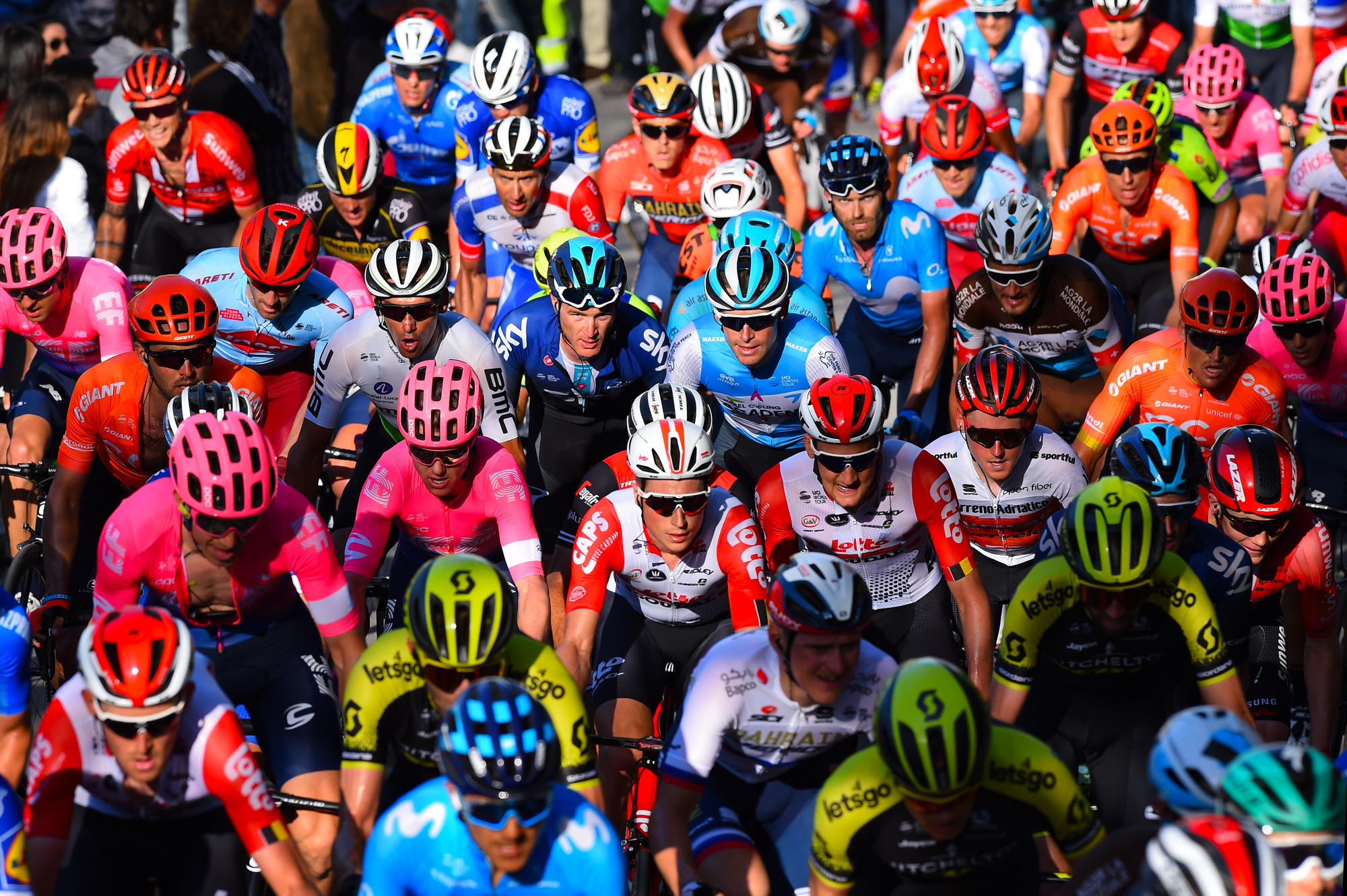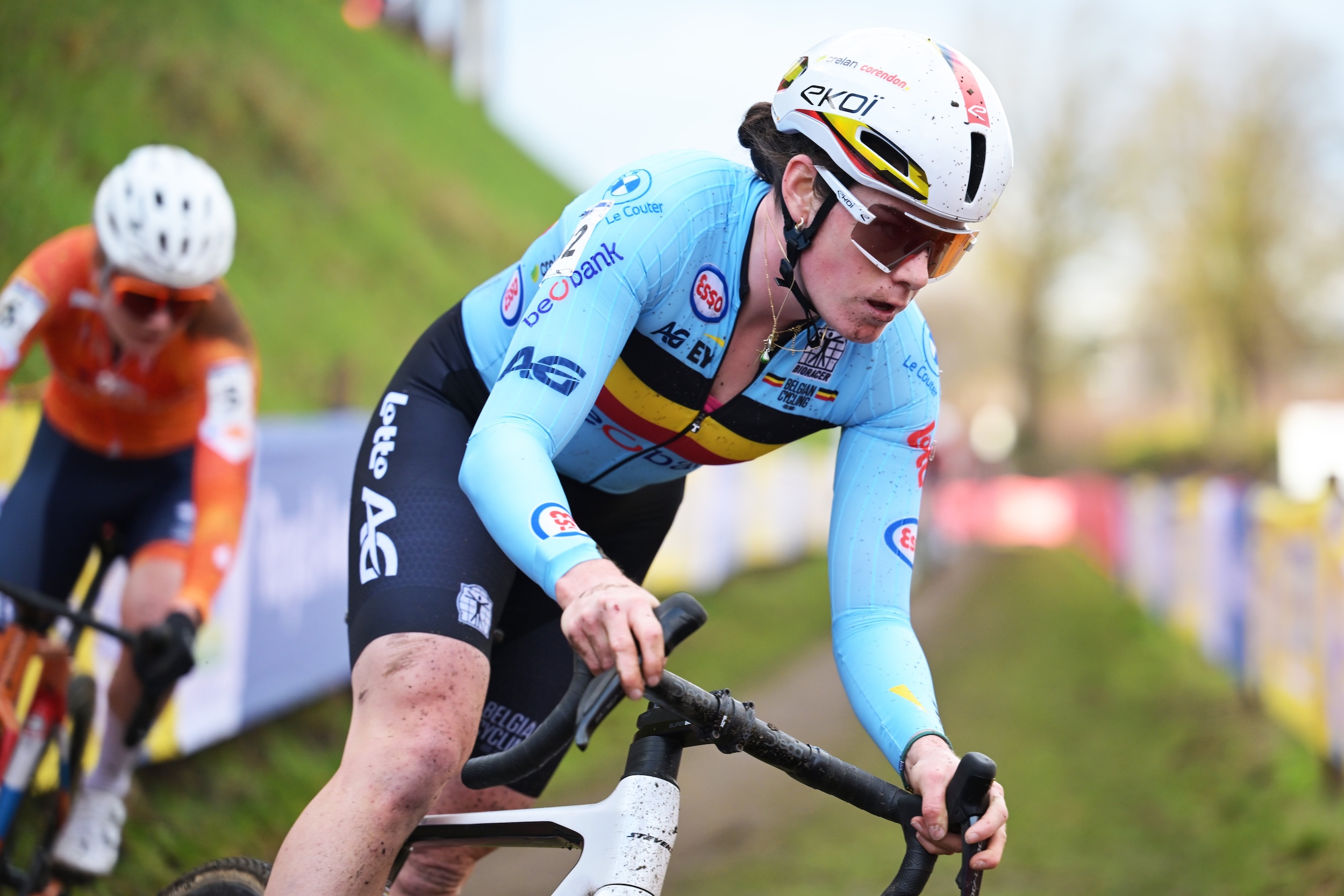Retired riders forced to wait two years for CPA retirement fund payments
Future payments based on available funds collected via a percentage of prize money

Cyclingnews has learned that the Cyclistes Professionels Associés (CPA) has brought forward proposed rule changes to the Transition Fund that include a points scoring system that will determine the amount riders could receive after their retirement.
In a document leaked to Cyclingnews, the CPA riders' association have also set out plans that will ensure that riders who retired in 2019 must wait until the Spring of 2022 before they can potentially receive the full allocation of their retirement fund. According to the document, which hasn’t yet been shared with all the riders who retired in 2019, the CPA have argued that these changes have been put in place as ‘special measures to mitigate the effects of the COVID-19 pandemic and the fund’.
As reported earlier this week by Cyclingnews, 69 riders who retired and successfully applied for the fund at the end of the 2019 season were supposed to be paid a sum of €12,500 this year but they have only been sent €3,000 so far, with the CPA blaming the COVID-19 pandemic for the situation. The retired riders were notified that they would only receive €3,000 in June and have since had no updates on the outstanding payments.
Created by the UCI in 2001 the Transition Fund is supposed to assist riders as they switch from the world of professional cycling to other careers. The UCI initially managed the Fund itself but transferred responsibility to the CPA in 2012. The Fund receives its income from a 5 per cent levy on race prize money.
One key problem with the fund is that it relies on the presumption that race organisers will be forthcoming with their prize money. This dates back to the period when the UCI managed the Fund, with bad debts initially being underwritten by the UCI in the first five years of the Fund. In recent years, the UCI has been working with the CPA to rectify this issue and collect all monies due from race organisers. However, the CPA have listed the globalization of the sport as one the reasons newer races haven’t been as reliable when it comes to forwarding prize money to the fund. The CPA also states that in some instances, prize money has been paid directly to riders, rather than to the fund.
A second issue with the fund comes down to structure. Riders who retired in 2019, for example, are not paid from the Fund’s accounts raised during those riders' careers, and are instead forced to rely on race prize money that’s collected after retirement. Finally, the Fund’s ‘ideal’ number of retirees is between 45 and 50 riders per year, so if the CPA receives more than the ideal amount of applicants, they struggle to pay riders.
The fact that 69 riders applied at the end of 2019 was a major problem and in 2020, with so many teams folding in both the WorldTour and Pro Continental ranks, it’s not impossible to envisage the CPA being inundated with more requests than ever before.
The latest race content, interviews, features, reviews and expert buying guides, direct to your inbox!
The proposed changes in the leaked CPA document relate to applicants that apply in both 2020 and 2022. They are set to be reviewed by the CPA’s Steering Committee and this comes after a season blighted by cancelled races due to the COVID-19 pandemic.
The Steering Committee is made up of Gianni Bugno, the current president of the CPA, and national ACP, ACCPI or UNCP presidents Jose de Santos (Spain), Christian Salvato (Italy), Pascal Chanteur (France), Paulo Couto (Portugal), and David Chassot (Switzerland).
Under the new guidelines, riders will be assessed based on the number of years they have raced at either WorldTour or Professional Continental level, meaning that the amount of €12,500 would no longer be fixed for riders who had raced for five years or more.
Under the new framework each year a rider spends at either WorldTour or Professional Continental levels will be given a score with 8.34 points given for a single season at the WorldTour, and 1.66 points for a Pro Continental season. The CPA provides no information within the document as to how it arrived at that points tally, but it is likely based on the minimum prize money mandated by the UCI at WorldTour and Pro Continental level.
The rider will then be eligible to receive a grant based on his share of the total points scored by all applicants to the Fund.
The document goes on to say that: “Each applicant will have a contribution coefficient corresponding to the % that his points represent out of the total calculated as laid down in article 2.1. Depending on the available funds and after determining a minimum payment amount, the CPA Steering Committee will use the contribution coefficient to award the rider a fixed amount plus another sum proportional to his coefficient."
At no point does the document state whether the retired riders will be entitled to €12,500, with the CPA adding that, “It being understood that the CPA Steering Committee will determine in advance the amounts of payments depending on the available funds and in accordance with the distribution criteria set out.”
The document then goes on to provide a timetable for payments. Riders who retired in 2019 are set to be awarded a second payment in March 2021, following the first payment that was already made in June 2020, with a third and fourth payment arriving in October 2021 and March 2022. Again, the CPA does not indicate a set amount for either payment.
For riders who retire at the end of 2020 and successfully apply for the fund, their four payments are staggered from April 2021, when the first payment will be made, with second and third payments due in October 2021 and March 2022, For riders retiring after 2021, there will be a minimum one-year delay before any payment is made.
Cyclingnews approached the UCI for comment on the new proposed rules but has yet to receive any form of response.
At this point it’s unclear if the UCI would be willing to step in and cover the shortfalls in generated prize money in order to ensure that the retirees from 2019 were able to claim their full entitlement to the retirement fund.
The UCI may also look at putting in measures to ensure that retired riders in 2020 are sufficiently covered. The bottom line, and this is listed in the CPA’s possible proposals, is that the UCI increases levies on race organisers in order to keep pace with the increased demands placed on Fund.
Cyclingnews put that question to the UCI, but has not received a response.
Daniel Benson was the Editor in Chief at Cyclingnews.com between 2008 and 2022. Based in the UK, he joined the Cyclingnews team in 2008 as the site's first UK-based Managing Editor. In that time, he reported on over a dozen editions of the Tour de France, several World Championships, the Tour Down Under, Spring Classics, and the London 2012 Olympic Games. With the help of the excellent editorial team, he ran the coverage on Cyclingnews and has interviewed leading figures in the sport including UCI Presidents and Tour de France winners.

